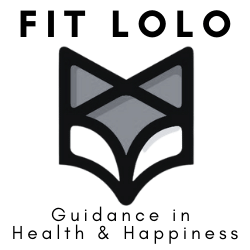170630 - Food Fact Friday w/ Coach Bri - "Supplements?"
Some of you may consider the use of supplements in your fitness routine. I’m going to cut right to the chase and tell you that I aside from a few specific instances, supplements are largely unnecessary, and if you have a well-balanced diet there is little you would be getting from supplements that you aren’t already getting from real food. However, some of you may still have an interest in supplements and their potential benefits for you as an athlete. I want to let you know which supplements have been found to have some benefits.
Supplements are any substances that improve athletic performance. They aren’t regulated by the Food and Drug Administration and are heavily marketed, so always make sure to do your research before trying a supplement. Supplements may have active ingredients that aren’t listed, and may also have inactive ingredients that are toxic or banned.
Caffeine
You may not consider caffeine to be a supplement, but it has been found to curb fatigue and can boost performance in up to 20 minute bouts of high intensity exercise (think CrossFit) and for endurance athletes. However, there can always be too much of a good thing, and general recommendations state that about 400 mg per day of caffeine (or the amount in four cups of coffee) is a safe level for adults. Beware of how much caffeine you are taking in as too much can lead to feelings of anxiety and affect sleep.
Glucosamine/Chondroitin Sulfate
Studies have shown that glucosamine/chondroitin sulfate can ease moderate joint pain, and might improve range of motion of joints. It’s difficult to get the amount of glucosamine and chondroitin sulfate in food as you could from a supplement. There may be cases where someone with joint pain might benefit from the use of glucosamine/chondroitin sulfate.
http://www.uofmhealth.org/health-library/hn-3880007
Creatine
Creatine is definitely one we hear a lot about. Research shows that it must be combined with resistance exercise to show any benefit. Small gains in lean body weight with repeated high-intensity, short-duration (<30 sec) bouts have been seen, in addition to to improved weight lifting performance.
http://www.uofmhealth.org/health-library/hn-3872000#hn-3872000-why-use
Branched Chain Amino Acids
The three branched chain amino acids are leucine, isoleucine and valine. They are essential amino acids, meaning that they can not be synthesized in our bodies, we must get them through food, or supplements. BCAAs have been found to possibly delay fatigue and be useful in improving immune function, specifically in endurance athletes. You will get BCAAs naturally if you eat meat, dairy products and legumes.
http://www.uofmhealth.org/health-library/hn-3862003#hn-3862003-why-use
Beta-Alanine
Beta-alanine is a non-essential amino acid and is necessary in the body for the production of carnosine. Increasing carnosine in muscles with beta-alanine supplementation has been shown to modestly improve certain measures of physical performance, specifically during high-intensity exercise and strength training. Beta-alanine supplements might also improve physical performance and delay muscle fatigue in older adults.
http://www.mensfitness.com/nutrition/supplements/supplement-guide-beta-alanine
Protein supplements
There are many sources of protein offered in supplement form. Some of these sources are animal (whey, whey isolate, casein, egg albumin), and some protein supplement sources come from plants (soy, pea). They come in multiple forms, including shakes, bars, pills and powders. Often there are added ingredients including artificial sweeteners and preservatives. However, they ARE convenient, and if you are looking for a quick meal on the go, this might be a good option. Or, if you struggle to get in enough calories, this might be an option to supplement your other meals. However, the more often you can get in real food the better. Protein supplements should never be used as a replacement for real food. They do not contain the vitamins, minerals or fiber that are so important for a healthy, highly-functioning body.
Some of the above mentioned supplements may not even be on your radar. That’s fine! Many of these supplements are aimed at improving performance in highly competitive athletes. Most of us as athletes looking to be fit and healthy don’t need to worry about supplements. Instead, we should be focusing on getting a wide variety of vitamins, minerals, protein, carbohydrates and fat from the food we eat, not from a pill or powder.
WOD
"Those Burpees Suck!"
10 pull-ups
20 KB swings 55/35
30 box jumps 24/20
40 push-ups
50 Abmat sit-ups
60 burpees
10 pull-ups!


